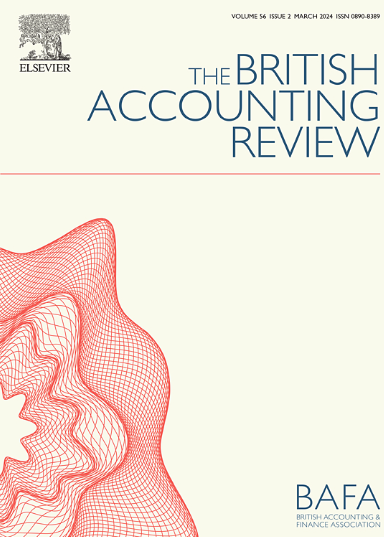Signals from CSR competition: The influence of relative CSR performance on analysts’ recommendations
IF 9.4
3区 管理学
Q1 BUSINESS, FINANCE
引用次数: 0
Abstract
Due to the institutionalization of corporate social responsibility (CSR) and its integration into firm strategy, firms are engaged in fierce competition, which has gained stakeholders' attention. As intermediary stakeholders, security analysts screen information on firms' CSR activities to make more accurate investment recommendations. Integrating signaling through CSR competition and screening theory, we develop a framework wherein firms' relative CSR performance and improvement across two years are viewed as complementary signals reflecting their ability and intent to engage in CSR and affect analysts' recommendations. Using a panel of Chinese listed firms from 2011 to 2019 (n = 15,735 firm-year observations), we find that analysts respond positively to firms' relative CSR performance. Further analyses show that firms' CSR performance improvement has a decreasingly positive effect on analysts’ recommendations, and this effect is more pronounced for firms with higher relative CSR performance. Our study contributes to the literature on CSR and screening theory by highlighting the value of comparative CSR signals and generates practical implications for participants in CSR competitions.
来自企业社会责任竞争的信号:企业社会责任的相对表现对分析师建议的影响
由于企业社会责任(CSR)的制度化及其与企业战略的融合,企业参与激烈竞争,这引起了利益相关者的关注。作为中间利益相关者,证券分析师会筛选企业社会责任活动的信息,从而提出更准确的投资建议。结合企业社会责任竞争信号和筛选理论,我们建立了一个框架,将企业在两年内的相对企业社会责任表现和改善情况视为互补信号,反映企业参与企业社会责任的能力和意图,并影响分析师的建议。利用 2011 年至 2019 年的中国上市公司面板数据(n = 15735 个公司年观测值),我们发现分析师对公司的相对企业社会责任表现做出了积极回应。进一步的分析表明,企业社会责任绩效的提高对分析师推荐的积极影响是递减的,而且这种影响对企业社会责任相对绩效较高的企业更为明显。我们的研究强调了企业社会责任比较信号的价值,为企业社会责任和筛选理论的文献做出了贡献,并对企业社会责任竞赛的参与者产生了实际影响。
本文章由计算机程序翻译,如有差异,请以英文原文为准。
求助全文
约1分钟内获得全文
求助全文
来源期刊

British Accounting Review
BUSINESS, FINANCE-
CiteScore
8.60
自引率
3.90%
发文量
39
审稿时长
76 days
期刊介绍:
The British Accounting Review*is pleased to publish original scholarly papers across the whole spectrum of accounting and finance. The journal is eclectic and pluralistic and contributions are welcomed across a wide range of research methodologies (e.g. analytical, archival, experimental, survey and qualitative case methods) and topics (e.g. financial accounting, management accounting, finance and financial management, auditing, public sector accounting, social and environmental accounting; accounting education and accounting history), evidence from UK and non-UK sources are equally acceptable.
 求助内容:
求助内容: 应助结果提醒方式:
应助结果提醒方式:


